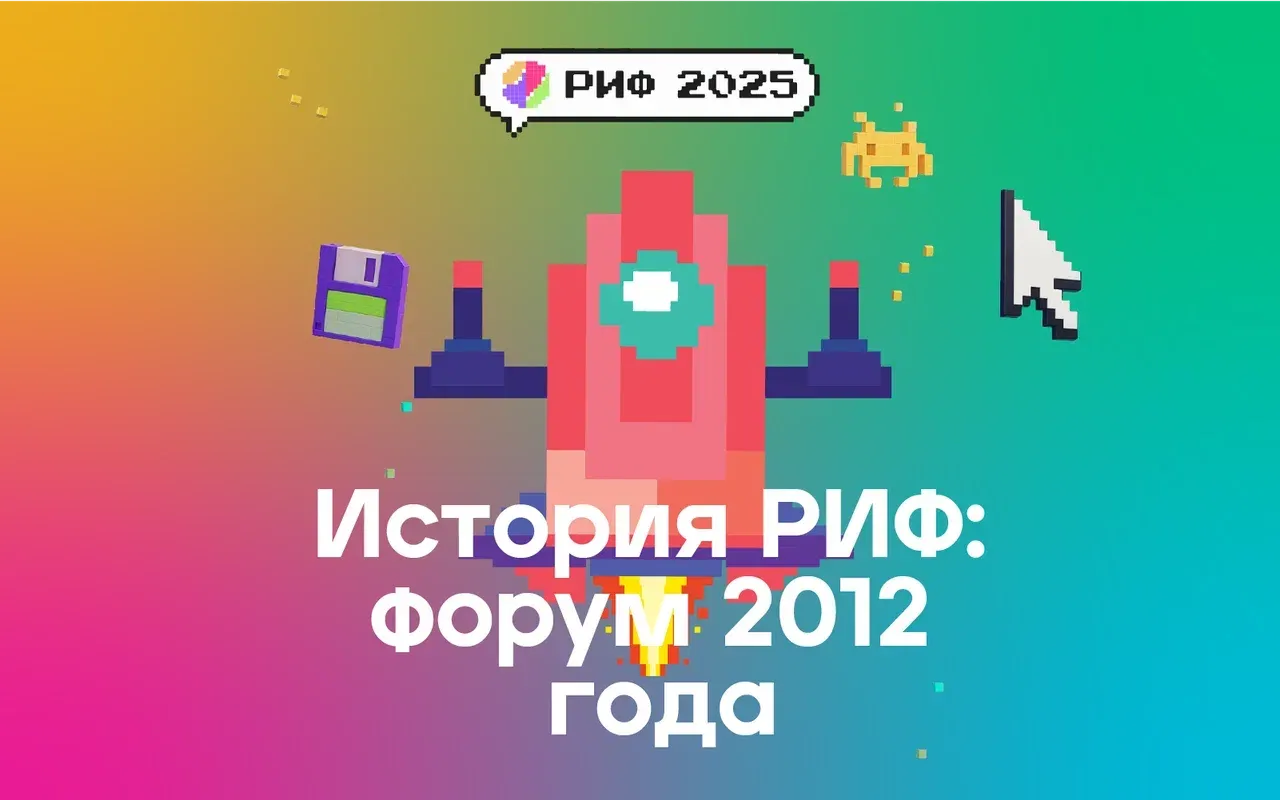RIF 2012: Executives, Mulled Wine, and the Expanding Runet
With more than 8,000 visitors and 30,000 online viewers, RIF+KIB 2012 demonstrated that Russia’s Internet industry was not just growing, but maturing — in size, ambition, and influence.

Leaders on Stage, New Formats at Play
In 2012, RIF+KIB packed over 100 sessions into nine parallel tracks, each lasting two hours. The lineup was record-breaking: 8,000 attendees, 30,000 livestream viewers, and representatives from more than 170 cities.
A new feature — the ‘Top Executives at RIF+KIB’ stream — brought CEOs and senior managers from Russia’s and the world’s largest Internet firms to the stage. They debated, clashed, and occasionally sparred in an industry talk-show format. For skeptics, the presence of these leaders was meant to signal that RIF mattered. For seasoned experts, their very attendance carried more weight than their words.
The star ‘top’ was Russia’s president, Dmitry Medvedev, who continued his tradition of addressing the country’s largest digital forum. Minutes after his greeting, attendees learned of the application to register the .РУС domain — a symbol of Runet’s global ambitions.
Runet by the Numbers: Growth That Matters
As tradition dictated, the opening sessions focused on the state of Runet.
- Monthly audience: 57.8 million people, up 15% year-on-year.
- Daily users: nearly 80% of the total.
- Broadband remained dominant, but 34% accessed via mobile — a share growing twice as fast as fixed access.
- Russia ranked 6th globally in Internet audience size and 1st in Europe.
This surge underscored a broader point: mobile connectivity was becoming the driver of Internet adoption, reshaping habits from communication to commerce.
RIF 2012 also cemented new industry keywords: RTB (real-time bidding), mobile apps, mobile traffic, SMM, startups. Attendees left with overflowing bags of swag and heads full of insights. The hottest takeaways boiled down to three: mobile marketing, dynamic sales, and targeted traffic. The mantra was simple: build a mobile version first, then design the full site.
Even the casual atmosphere delivered serious lessons. Between free soda dispensers and coffee stands, attendees picked up formulas for mobile success: 3 clicks to purchase, 5 elements per page, 7-second load time.
Between Entertainment and Strategy
The event mixed hard thinking with leisure: forests, barbecue, hookah lounges, branded mulled wine, even custom Alka-Seltzer. Some complained of scheduling clashes or content lulls, yet those who wandered into ‘off-topic’ sessions found practical gems — from team management strategies to psychological reboot methods when brainstorming no longer worked.
Foreign speakers added a global perspective. Some warned of surveillance risks: that mobile phones could be remotely activated to eavesdrop, that hidden backdoors existed in mainstream operating systems, and that ‘you don’t control the computer — the computer controls you.’ The audience listened politely, but most dismissed the warnings as paranoia.
Meanwhile, Internet advertising trends kept the focus grounded. RTB technologies promised to track user behavior and serve only relevant ads. International guests praised Russia’s progress, even as they pointed to gaps in investment, access speeds, and regional penetration. Their verdict: beyond the Urals, challenges remained.
Yet monetized, practical startups stole the spotlight from me-too social apps. One example: a Moscow taxi service born from frustration with unlicensed drivers, high fares, and traffic jams. It promised cars arriving in under 10 minutes, shared rides to the nearest metro for just a few dozen rubles (≈ $1), and an open system where any driver or fleet could join if they had a car. For a traffic-plagued city, it was revolutionary.
Scandals, Ethics, and the Future
The Internet marketing track delivered drama. When a speaker publicly turned away from a questioner — later revealed as a representative of an SMM agency inflating bots — the incident sparked a scandal. The agency was blacklisted, effectively cutting it off from clients. Supporters saw this as a justified stand against fraud. Critics argued it was populism, noting the speaker conveniently scooped up the disgraced rival’s clients. The debate highlighted unresolved ethical tensions in Russia’s digital market.
Despite the controversies, the overall sentiment was clear: RIF 2012 met the expectations of professionals and exceeded those of casual observers. By the event’s end, registrations were already open for RIF+KIB 2013.
Runet, once an emerging ecosystem, was now shaping global narratives — with its own culture, scale, and increasingly exportable ideas.

